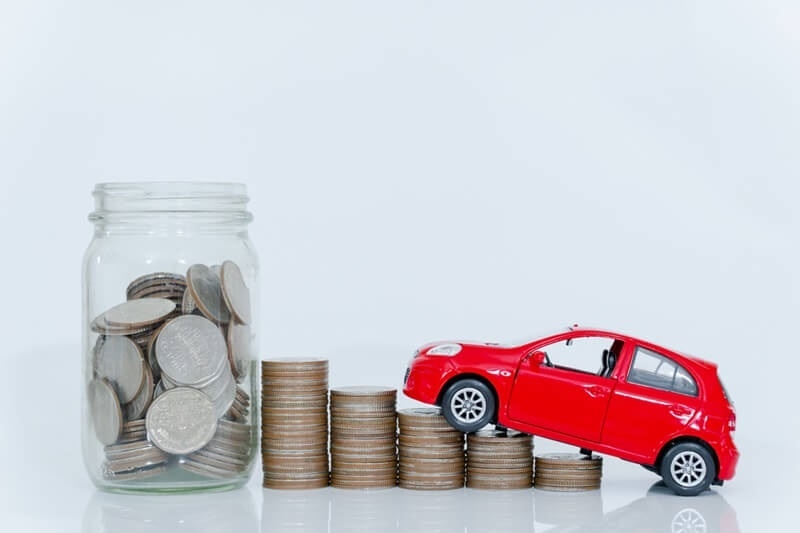Essential Car Budgeting Tips to Buy a New Car Without Stress

Purchasing a new car is exciting, but the financial aspect can sometimes be intimidating. There is a considerable initial purchase price, monthly payments, insurance, maintenance, and so on, and it can quickly feel complex to determine your actual new car budget. Thus, it is important to understand sensible car budgeting techniques. If properly planned, you can afford to park your car of choice in your driveway without having to break the bank or your peace of mind.
This guide will demonstrate how to create a budget for a new car step-by-step - from the planning aspects of payment to budgeting for unexpected expenses.
Car Budgeting Tips to Buy a New Car

Here are some of the best car budgeting tips to buy a new car without any stress:
1. Know What You Can Afford
Before you start the car-buying process, get real about what you can afford. One of the most important car budgeting tips is to clearly understand your total income and expenses. You'll also have to figure out how much you have leftover after you pay for rent, groceries, utility bills, and other debts.
Financial experts commonly recommend that the total amount of money spent on a car, including loan, insurance costs, fuel, and maintenance, should not be more than 15–20% of the monthly income. Being within these limits guarantees that you will still be able to achieve other financial objectives like saving, investing, or keeping up with an emergency fund.
2. Set a Realistic Budget
After figuring out your income and expenses, you can move on to drafting a concrete plan of action. One of many helpful car budgeting tips is setting a car budget both in total and per month.
- Total Car Budget: Take into account the money for the car, along with that for taxes, registration, and any dealer charges.
- Monthly Budget: Think of the car loan, fuel, parking, and insurance money.
When you separate these two ideas, you understand better what you are going to pay currently and what you will have to continue paying gradually. The small yet frequent costs are easily forgotten, but they add up quite rapidly. Leaving a clear budget on paper is a great way to keep to your plan and avoid overspending.
3. Estimate Your Monthly Payments
It is quite necessary to have a clear calculation of monthly installments if a loan is used for the purchase. Your down payment, duration of the loan, and interest rate mainly determine the sum. Of course, your monthly bill will be the least if your initial payment is the highest.
To avoid incurring debt and money-related worries, you can:
- Keep the duration of the loan short, e.g., under five years.
- Before deciding on a lender, get the loan offers from different lenders and check the interest rates they offer.
- Not adding extraneous items that will increase the loan amount.
There are online calculators that can tell you your monthly payment with a specified car price and interest rate. It is advisable to always check several options so that you can see the effect of the change in loan amount or duration on the installment.
4. Factor in Insurance Costs
Many people fail to remember that the budget should cover car insurance and therefore do not budget for it; however, it is a significant recurring expenditure. Premiums are different for everyone and are based on where one lives, the condition of the vehicle from the past, the driver's age, and the vehicle type that the customer is willing to buy.
Just like with most luxurious or performance cars, insuring these types of vehicles often comes with higher costs. To evade shocks:
- Before committing to buying a vehicle, request a quote for auto insurance.
- Pick and choose from at least three different plans and companies before you decide which one offers the best fit for you.
- Inquire about safe-driving, bundling, or safety features installation discount offers.
Incorporating the insurance cost into your monthly car budget will allow you to plan more precisely and thus avoid the hardships of money-related stress later on.
5. Plan for Maintenance and Repairs
The purchase of an automobile does not terminate your spending—it pledges you for a long time to come. The stipulated maintenance, for instance, oil changes and tire rotations, will keep the vehicle dependable. That is why maintenance planning must always be a part of one’s car budget.
For maintenance planning not to be so complicated, you can:
- Put away a modest amount each month for the routine services.
- Keep to the maintenance schedule given by your vehicle’s manufacturer.
- Do away with the dealer for good, and choose a reputable local mechanic.
This strategy will save you from costly repairs in the coming years and keep the car in good working order.
6. Build an Emergency Fund
Sometimes costs that you didn’t plan for come up, such as an accident, a sudden engine issue, or a job change. These unexpected events are what an emergency fund is for.
If possible, your emergency fund should be enough to cover your living expenses for three to six months. It is best to keep your emergency fund in a separate account from your checking account, but accessible so you can withdraw money when you need it. Make it a habit to put some small amount in that fund occasionally, and it will grow over time.
It will surely calm you down to know that you have some money put aside for surprise expenses, and that assurance will empower you to own a car without worrying.
7. Consider Other Hidden Costs
Besides the car installment loan, insurance, and maintenance costs, there are some small expenses that might take new car owners by surprise.
These include:
- Registration and taxes: Usually, they are paid annually or semi-annually.
- Fuel: Prices may vary, so plan a little extra in your budget.
- Parking fees or tolls: Common in urban areas.
Incorporating these minor expenses into your car budget tips will give you a better picture of your finances. It is always better to make a little more than your total budget than to make less and suffer later.
8. Choose Between New and Used Cars
Maybe your budget will be enough for a brand-new car if you go for a lightly used one. New cars lose their value very fast, practically from the moment they leave the dealership. The price of a car that is one or two years old can often be lower by several thousand dollars, but the car itself can still be in perfect condition.
Here is the smart car budgeting advice that this works:
- Calculate the total cost of new vs. used ownership.
- Before buying a pre-owned car, examine its history report.
- If you want an extra warranty, check out certified pre-owned programs.
Used car buying can allow you to have sufficient money for the other parts of your life, such as maintenance planning or increasing your emergency fund.
9. Decide on a Down Payment
If you use your money for a strong down payment, then the loan will likely save you money over time. The best thing to do is to make a down payment of at least 20% of the price of the car. This action will make your payments lower, as well as your total interest, and it will also decrease the risk of being in debt for more than the car is worth later on.
When it is difficult for you to save this much money at once, you should consider a car savings plan. You can decide to save a certain amount each month until you have put enough money aside. Not only will you become more disciplined, but you will also be less pressured financially when you make a purchase.
10. Avoid Emotional Purchases
One positive effect of car shopping may be the excitement that is easily generated, but bad decisions are usually made because of emotions that result in overspending. Therefore, one of the best car budgeting tips is to identify which of your wants and needs are which.
Ask yourself:
- Do I absolutely need the latest model, or can I go for a slightly older one?
- Is this car suitable for my daily work routine?
- Can I easily take care of insurance and maintenance costs?
Being truthful to yourself will help you avoid regretting later, and it will also enable you to stay within your predetermined budget.
Final Thoughts
The act of buying a car doesn’t need to cause a financial crisis situation where you are forced to save little bits of money. By utilizing proper car budgeting tips, you are able to prepare for each stage of the buying process as well as manage subsequent upkeep, insurance costs, and emergency funds.
By creating a detailed financial plan before purchasing a car, you will be able to enjoy having a car and the peace of mind that comes with proper money management.
This content was created by AI

